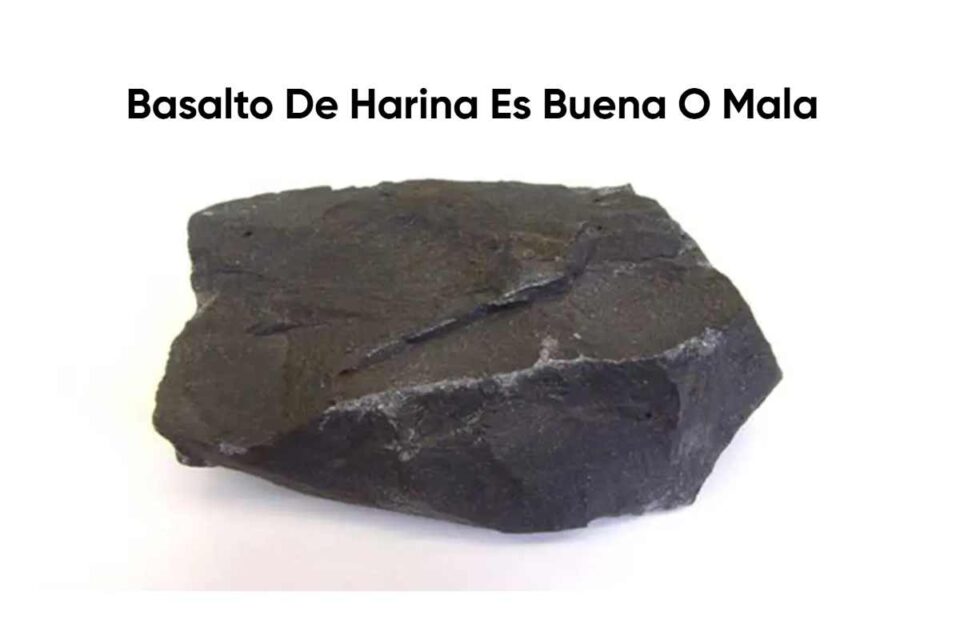Basalto de Harina Es Buena o Mala?

Many people have recently been asking the question “basalto de harina es buena o mala”. Basalt flour is gaining attention in agriculture, construction, and even dietary circles due to its mineral-rich composition. But is it truly beneficial, or can it be harmful? In this article, we’ll explore the properties, benefits, risks, and proper uses of basalt flour, helping you understand whether basalto de harina es buena o mala.
What Is Basalt Flour?
Basalt flour is a finely ground powder made from basalt rock, a volcanic stone naturally rich in minerals such as calcium, magnesium, iron, and silicon. The process of grinding the rock into flour makes these minerals more accessible for plants, soil, and sometimes human use in controlled situations.
The keyword “basalto de harina es buena o mala” often appears in searches because people want to know whether this natural product is safe and effective.
Common Uses of Basalt Flour
1. Agriculture and Soil Improvement
One of the most popular applications of basalt flour is in farming and gardening. Farmers and gardeners use it as a natural fertilizer to:
- Enrich soil with essential minerals.
- Improve soil structure and water retention.
- Promote microbial activity in the soil.
- Enhance plant growth and crop yields.
In this context, the question “basalto de harina es buena o mala” usually leans toward positive, as many studies show improvements in soil health and productivity.
2. Dietary Mineral Supplement
Some sources suggest that basalt flour can be used as a dietary supplement because of its mineral content. However, it’s crucial to note that not all basalt flour is safe for consumption, and only certified food-grade products should ever be used.
This is an important point for those considering the question “basalto de harina es buena o mala” for health purposes. Without proper quality control, ingestion could be harmful.
3. Construction Material
Basalt flour is also used as an eco-friendly additive in cement, mortar, and other construction materials. It can improve strength and durability while reducing the environmental footprint compared to traditional cement.
Benefits of Basalt Flour
When considering “basalto de harina es buena o mala”, it’s important to understand the main advantages:
- Rich in Minerals – Supplies essential nutrients such as calcium, magnesium, and silicon.
- Improves Soil Fertility – Acts as a natural fertilizer, reducing the need for synthetic chemicals.
- Sustainable Construction – Helps create stronger, eco-friendly building materials.
- Supports Plant Growth – Enhances plant resistance and increases crop yields.
These benefits explain why many people view basalt flour positively in both agriculture and environmental applications.
Potential Risks
Despite its benefits, there are some risks associated with basalt flour:
- Contamination Risk – Basalt from polluted areas may contain heavy metals.
- Not Safe for All Human Consumption – Only certified, food-grade products should be ingested.
- Dust Hazards – Inhaling the fine powder can irritate lungs and respiratory passages.
- Overuse in Soil – Excessive amounts may change soil pH and harm plants.
Considering these factors helps answer the question “basalto de harina es buena o mala” more accurately.
Scientific Evidence
Research in agriculture shows that basalt flour:
- Improves nutrient availability in soil.
- Increases water retention and soil carbon content.
- Acts as a natural alternative to chemical fertilizers.
However, evidence for human consumption is limited, so extreme caution is recommended when using it as a supplement.
How to Use Basalt Flour Safely
- Agriculture: Apply 100–200 grams per square meter, depending on soil and crop type.
- Dietary Use: Only use food-grade basalt flour and follow expert guidance.
- Construction: Mix properly in cement or mortar to ensure structural safety.
- Handling: Avoid inhaling dust; use gloves and a mask when handling.
By following these precautions, you can use basalt flour effectively and safely.
Conclusion: Basalto de Harina Es Buena o Mala?
So, is basalto de harina es buena o mala? The answer depends on its application:
- Good, when used properly in agriculture, sustainable construction, or as a certified dietary supplement.
- Potentially bad, if sourced from contaminated areas, overused in soil, or consumed without proper certification.
In summary, basalt flour is a natural product with numerous benefits, but careful handling, sourcing, and proper use are essential. When applied responsibly, basalto de harina es buena o mala leans toward being beneficial for soil health, plant growth, and eco-friendly building practices.
Learn whether basalto de harina es buena o mala—explore its benefits, risks, and safe uses in agriculture, construction, and mineral supplementation.
